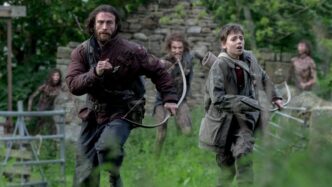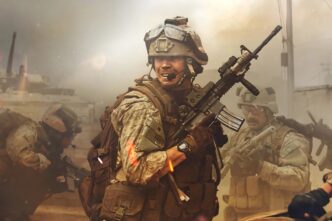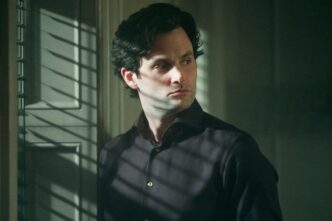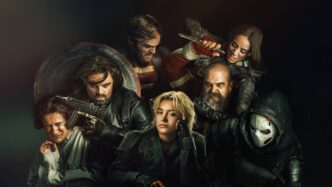Umbrella Academy isn’t the first superhero property to take a stab at the dysfunctional superhero family idea.
However, it’s the first Netflix series to do so, and the series works more often than not for the most part.
Sometimes, Family isn’t Everything
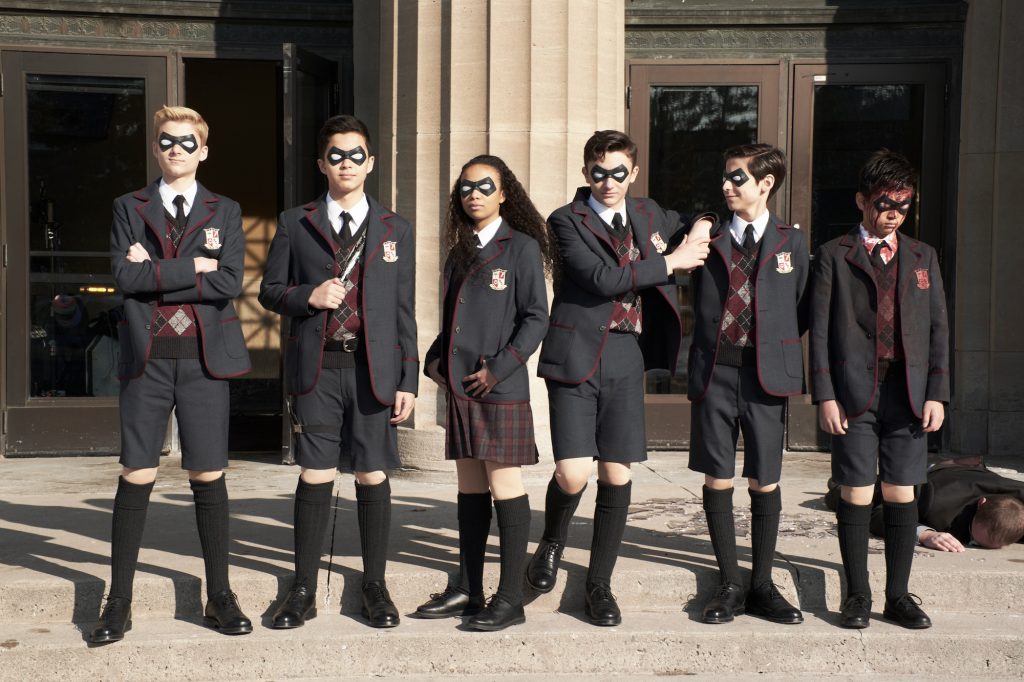
Adapted from the first six issues of the comic book of the same name (created by Gerard Way of My Chemical Romance and Gabriel Ba, who both serve as Executive Producers), Umbrella Academy tells the tale of six adopted siblings who were all born on the same day through spontaneous pregnancies, along with 37 other people. An eccentric billionaire named Reginald Hargreaves collected seven of them and raised them to be superheroes. He is joined by a genius chimpanzee butler and a robot mother in his efforts to raise the children.
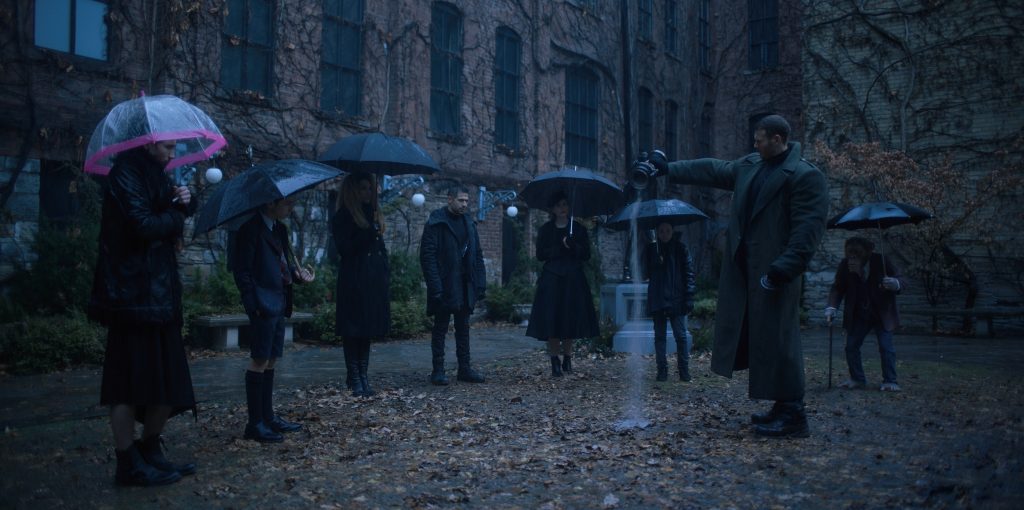
Decades later, the seven have grown up into dysfunctional adults, who avoid each other until they are relunctantly brought together by the event of their father’s death. Shortly afterwards, one of their long missing members, Number Five, reappears after missing for years, having returned from the future. He brings grim news: the world is ending mere days from now.
While the comic is a lot more outlandish and contains more superheroic elements (featuring more traditional costumes and most of the heroes still retaining them in the present day) the show tones these elements down considerably in lieu of focusing on the family dynamic. The series fleshes out the characters of the show considerably, adding a lot more backstory and sometimes changing personalities to fit the new narrative.
Number Three, Klaus, was abused by his father for his ability to communicate with and bring back the dead, being locked inside an mausoleum when he was thirteen. He has grown up an alcoholic and addict trying to deal with the damage. Vanya, Number Seven, is apparently powerless, and has thus been neglected by her father and the rest of her family for most of her life. She later wrote a tell-all memoir that further estranged her from her family.
The iO9 review summed it up best when it referred to the show as a superhero version of The Royal Tenenbaums, but the lack of the comic book’s whimsy is keenly felt. One might think the dour vibes of the show are in line with the emo punk nature of My Chemical Romance’s music, and they wouldn’t be that wrong.
The melodrama can get a bit too drab sometimes, and the pacing suffers early on and in the middle.
The core story of the first season was adapted from just six issues, each twenty two pages each, and it shows. Some of the sub plots are considerably more fleshed out, such as Number Five’s encounters with the Time Travel Commission and its enigmatic Handler. The mystery thread is deflty carried through for most of the series, and the way it pans out to reveal an unexpected danger is done beautifully. The series picks up in the last three episodes, and the unexpected finale keeps you jonesing for the second season.
Excellent Acting and a Great Soundtrack are Highlights of the Season
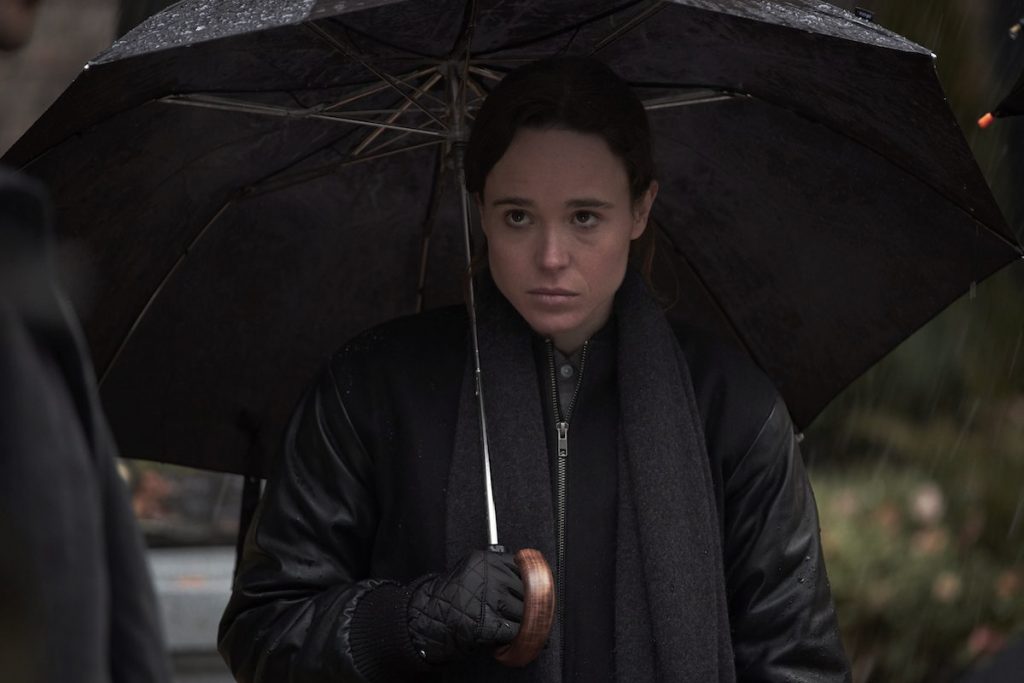
Ellen Page does well as the stricken Vanya Hargreaves, always nursing the wounds inflicted by years of neglect. She starts to blossom once she finds love, but new misfortunes soon steer her down a dark path. Klaus, Luther and Allison all receive decent character arcs, although the romance sub plot between the latter two is potentially squicky due to the adopted siblings situation.
Other than the acting, robust direction and strong production values, the soundtrack is also very, very good.
The show opens with a violin rendition of Phantom of the Opera, and there’s a small reprise of Beethoven’s 7th Symphony. Although a little part of me is a tiny bit disappointed at the lack of My Chemical Romance, at least we get some Queen, Nina Simone, The Doors and Radiohead to boot.
Sticking Together, for Better or for Worse
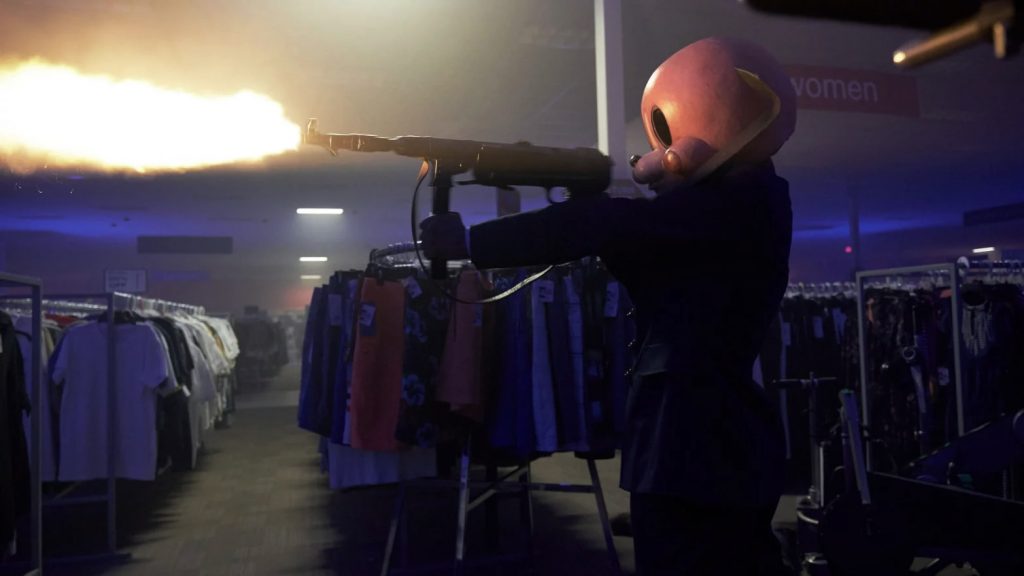
The family thread ultimately ties the story together, and forms the basis for the climax. Important threads, like the tension between Allison and Vanya, and the way Number Five doesn’t always behave in trustworthy ways, provide important punctuation points in a series that can often meander with its plot. One sub plot involves a pair of time traveling assassins, Hazel and Cha Cha, hounding our heroes, with one of them eventually having a crisis of conscience.
There are some cool fight scenes in the series, although it’s a disappointment that it didn’t adapt the bombastic Paris fight scene from the first issue of the comic book. Then again, a cyborg Gustav Eiffel operating the Eiffel Tower (which is actually a spaceship) into space is a bit difficult to adapt.
The series could have benefitted from fewer episodes and tighter scripting, but at least it’s not thirteen episodes.
As it progresses, it tends to grow on you. It remains to be seen how it will fare in future seasons, since the first season ends in a markedly different manner than the first arc of the comic book.
Umbrella Academy doesn’t get everything right with its first season, but it shows plenty of promise. You could spend ten hours on worse things, definitely, and hopefully this is an investment that will pay off well in the future.


